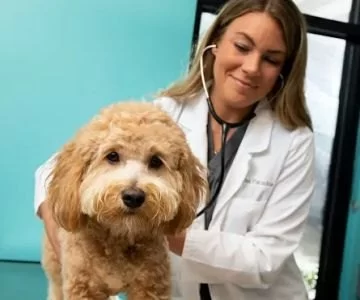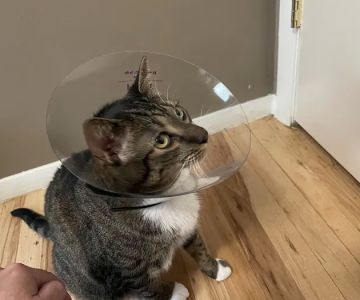- how-to-tell-if-your-pet-has-allergies-and-what-to-avoid
- common-signs-of-pet-allergies
- types-of-allergies-that-affect-pets
- what-to-avoid-if-your-pet-has-allergies
- real-life-stories-that-highlight-allergy-risks
- ways-to-manage-and-prevent-allergies
1. How to Tell If Your Pet Has Allergies and What to Avoid
Pet allergies can be frustrating for both owners and their furry companions. They may appear as minor irritations at first, but if left untreated, allergies can develop into chronic conditions. Knowing how to tell if your pet has allergies and what to avoid is crucial for keeping them comfortable and healthy. At Hidden Brook Veterinary, we help pet owners every day identify triggers and find solutions tailored to their pets’ needs.
2. Common Signs of Pet Allergies
Pets don’t always show allergic reactions the same way humans do. Instead of sneezing or watery eyes, they often display skin and digestive symptoms. Here are some common signs:
2.1 Skin-Related Symptoms
Excessive scratching, licking paws, or red, irritated patches on the skin can all point to allergic reactions. Hair loss and frequent ear infections are also linked to underlying allergies.
2.2 Digestive Issues
Food allergies can cause vomiting, diarrhea, or constant gas. These issues often appear gradually and can be mistaken for minor stomach upsets.
2.3 Behavioral Changes
Discomfort from allergies may make pets restless, anxious, or irritable. If your normally calm pet is suddenly scratching all night or chewing their paws, allergies may be the cause.
3. Types of Allergies That Affect Pets
Understanding the type of allergy helps in identifying the right treatment. Pets may experience food, environmental, or flea allergies, each with its own challenges.
3.1 Food Allergies
Proteins like chicken, beef, or dairy are common triggers. Some pets develop intolerances over time, even to foods they’ve eaten for years.
3.2 Environmental Allergies
Pollen, dust mites, and mold often lead to seasonal flare-ups. Just like people, pets can suffer from itchy skin and runny noses when pollen counts are high.
3.3 Flea Allergies
Even a single flea bite can cause an intense allergic reaction known as flea allergy dermatitis, resulting in relentless itching and secondary infections.
4. What to Avoid If Your Pet Has Allergies
Once allergies are identified, knowing what to avoid is just as important as treatment. Eliminating or reducing exposure to triggers can significantly improve your pet’s quality of life.
4.1 Avoid Common Food Triggers
Read labels carefully and avoid feeding your pet human food scraps. Specialized diets may be necessary for pets with confirmed food allergies.
4.2 Minimize Environmental Exposure
Keep windows closed during peak pollen seasons and vacuum frequently to reduce dust mites. Bathing pets regularly with vet-approved shampoos can also help remove allergens from their coat.
4.3 Stay Ahead of Flea Control
Consistent use of flea preventatives is essential, even if your pet spends most of their time indoors. Hidden Brook Veterinary offers safe and effective flea control options tailored to your pet’s health.
5. Real-Life Stories That Highlight Allergy Risks
One client brought in a cat who had been scratching her ears raw. It turned out to be a food allergy to chicken, which was easily resolved by switching diets. Another case involved a dog who couldn’t stop biting his tail; flea allergy dermatitis was the culprit. With consistent flea prevention, his symptoms disappeared. These stories show how identifying triggers and making small changes can drastically improve a pet’s life.
6. Ways to Manage and Prevent Allergies
Managing allergies isn’t just about treatment—it’s about creating a comfortable lifestyle for your pet.
6.1 Regular Vet Visits
Routine checkups at Hidden Brook Veterinary allow us to monitor changes and catch allergy symptoms early before they worsen.
6.2 Personalized Care Plans
Each pet is unique. We work with owners to design care strategies that include diet adjustments, medication, and lifestyle changes.
6.3 Ongoing Observation
Owners play the most important role by observing their pet’s behavior. Keeping a diary of symptoms can help identify patterns and triggers more quickly.
By recognizing symptoms early and knowing what to avoid, you can protect your pet’s health and ensure they live a more comfortable, happy life.












